
©Brigitte Werner CC BY-NC 4.0
Given that wild Pacific salmon are a keystone species throughout BC and the North Pacific Ocean, the need to improve understanding of the causes of the declines, and to develop effective approaches to restoring salmon abundance and sustainable fisheries has become critical. A natural resource of such extraordinary ecological, socio-economic, and cultural value merits greater respect, but the present systems are failing them with little prospect for change.
Although there has been considerable research into the causes of these declines, as well as large reductions in fishing effort to compensate, the declines continue. Further, there have been numerous initiatives to protect and replenish salmonid habitat and supplement production via hatcheries to enhance salmon production. Despite these efforts and investments, debates about causes of the declines continue, while the same past measures continue to be applied and efforts to restore salmon continue to fail. There is critical need for improved understanding of the causes, and the development of, collaborative effective approaches to rebuilding wild salmon stocks and sustainable fisheries.
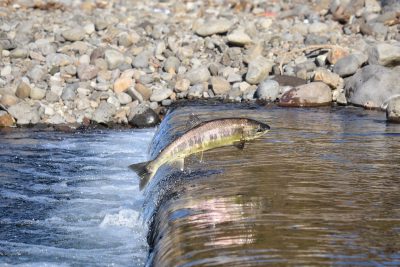
©12252435 CC BY-NC 4.0
The life history of salmon is complex across terrestrial freshwater systems, estuaries and coastal environments, and the open North Pacific Ocean. Plus, the salmon world is an intertwined human-natural system that must be appreciated and incorporated into any long- term restoration plan, including the diversity of people and users (Indigenous right holders, commercial and recreational fishers, tourism industry, etc.). This project directly addresses this need through broader collaboration, and a collection of knowledge and technologies.
Through a series of community dialogues focused on local knowledge and needs, the project intends to integrate the strengths from the diverse community of knowledge holders, the experience of Canada’s university community and industry, and the creativity of shared dialogue to identify new approaches to salmon rebuilding, and gaps in our knowledge through the life cycle of Pacific salmon. Output from these dialogues will be further discussed in a hosted workshop at UBC Vancouver to provide input to salmon rebuilding, application of salmon hatcheries, and restoration of salmon habitats.
]UBC and the Institute for the Oceans and Fisheries (IOF) are well positioned to convene gatherings that bring together a broad collection of community members and renowned experts to help piece together the bigger picture for Pacific salmon. UBC and IOF have the width and breadth of knowledge and expertise and connections to other relevant academic and scientific partner organizations, including Indigenous organizations, to address components at play and have the resources and ability to bring others together as needed.
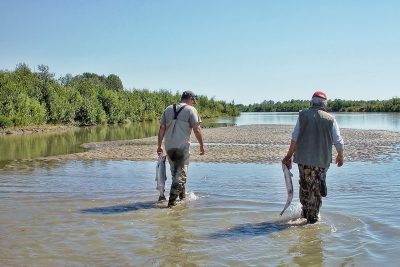
©Barbara Jackson CC BY-NC 4.0
The Project's main objective is to gather local knowledge from communities and salmon scientists with the goal of more effectively rebuilding Pacific salmon production and to support governments, industry, and BC peoples to better prepared for the future.
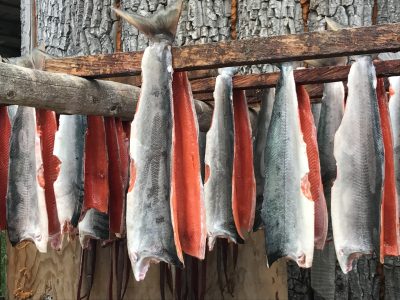
©delainaburrow CC BY-NC 4.0
This proposal will build from strengths already present at UBC including the Institute for Oceans and Fisheries (IOF), the Biodiversity Research Centre (BRC), Department of Earth, Oceans and Atmospheric Sciences (EOAS), Canada’s Ocean Network (at UVic), and our established relations with federal and provincial ministers.
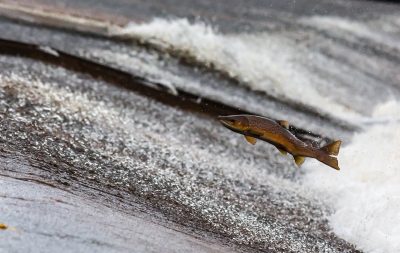
©Danny Moore CC BY-NC 4.0
- Create a network for more open communication and collaboration across BC to the benefit of rebuilding Pacific salmon.
- Identify priority topics for actions and local partnerships.
- Provide advice to governments (at all levels) on local actions for rebuilding salmon, identify knowledge gaps, and strengthen collaborations between communities, universities, and governments to benefit salmon in an uncertain future.
| Date & Time | Location | Venue |
| May 22 9:00 am – 12:00 pm |
Richmond | Richmond Olympic Oval |
| May 23 9:00 am – 12:00 pm |
Chilliwack | Chilliwack Cultural Centre Rotary Hall Studio Theater |
9:00 am – 12:00 pm |
Pacific Ballroom |
|
9:00 am – 12:00 pm |
Cedar Front & Cedar Centre |
|
9:00 am – 12:00 pm |
Heritage Hall |
|
9:00 am – 12:00 pm |
Sherri Bell Hall |
|
9:00 am – 12:00 pm |
Centre Hall |
|
9:00 am – 12:00 pm |
||
9:00 am – 12:00 pm |
||
9:00 am – 12:00 pm |
Kamloops Kia Lounge |
|
9:00 am – 12:00 pm |
Terrace Sportsplex |
|
9:00 am – 12:00 pm |
9:00 am – 12:00 pm |
Brian Riddell
Project Lead
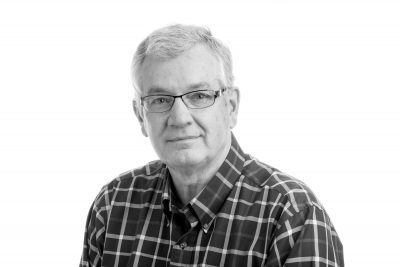
Brian E Riddell, PhD.
Prior to joining the Pacific Salmon Foundation, Brian worked for 30 years in salmon research and management with Science Branch, Department of Fisheries and Oceans (Pacific Biological Stations); where he co-authored Canada’s Policy for Conservation of Wild Pacific Salmon (2005) and provided science advice to the Pacific Salmon Treaty. Brian joined the Pacific Salmon Foundation in 2009 as President/CEO. Since joining, he established the Salish Sea Marine Survival Project and the research network (www.marinesurvivalproject.com). Brian retired as CEO/President of PSF on March 31, 2019 and as a Science Advisor March, 2022.
Brian was also a Commissioner for Canada to the Pacific Salmon Commission (2009-2021) and served as a member of the Royal Society of Canada’s Expert Panel on Ocean Climate Change and Marine Biodiversity. He was a member of the Province of BC’s Minister of Agriculture’s Advisory Council on Finfish Aquaculture (2018), and on the Board of Directors for the new Salish Sea Institute, Western Washington University. Brian has received numerous awards including the Murray Newman Award for Marine Conservation (Vancouver Aquarium), was inducted into the Fraser River Hall of Fame, and received the Larry Rutter Award for contributions to the Pacific Salmon Treaty. Throughout his career, Brian has participated extensively on scientific advisory committees including Canada’s Pacific Fisheries Resource and Conservation Council and the U.S. National Science Council.
Since 2018, Brian has also been instrumental in enabling research in the Gulf of Alaska to investigate the winter ecology of Pacific salmon (2019 and 2020 expeditions). In March 2022, he (with Dr. Dick Beamish and through the Pacific Salmon Foundation) enabled the use of Japanese research gillnets to compare with trawl nets to be fished simultaneously in the Gulf of Alaska. In 2021, he also co-authored the UN Decade of Ocean Science proposal (submitted by Mark Saunders, NPAFC and Sonia Batten, PICES) to link climate change, ocean effects, and fish production; using Pacific salmon as the exemplar species; and links ocean change with coastal communities. The proposal (BECI, www.BECI.info ) has been endorsed (October 2021) by the International Oceanographic Commission and is currently being developed. It is the only UN Decade proposal that is endorses and links ocean process with fisheries.
In June 2023, Dr. Dick Beamish and Brian Riddell were awarded the R.E. Ricker Award in Fisheries Conservation by the American Fisheries Society for their leadership and research in the North Pacific Ocean as part of the International Year of the Salmon.
In retirement, Brian continues for work for salmon conservation and restoration. In collaboration with UBC Institute of Ocean and Fisheries, in 2023/24 he will manage a series of public consultations to inform government of priority investments in hatchery modernization, habitat restoration, and climate mitigation.
1974 BSc. University of Guelph (Hons. Marine Biology), 1979 PhD. Zoology, McGill University (Population biology & genetics)
William Cheung
Project Lead
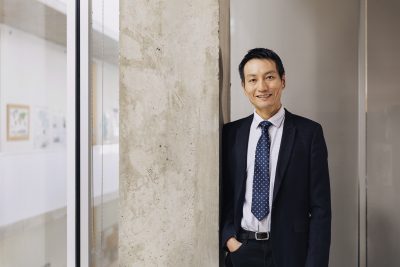
William Cheung, PhD.
Dr. William Cheung is a Professor and Director of the Institute for the Oceans and Fisheries, the University of British Columbia. He is a Canada Research Chair in Ocean Sustainability and Global Change. He studies the nexus of food-climate-biodiversity in the ocean. He is the Principal Investigator of the Changing Ocean Research Unit at UBC. He serves as Director for a 6-year SSHRC Partnership “Solving the Sustainability Challenges at the Food-Climate-Biodiversity Nexus”. He is an international leader in developing and using scenarios and models to explore solution options and pathways to desirable and sustainable ocean futures. His work addresses policy-relevant research questions and cuts across multiple disciplines, from oceanography to ecology, economics and social sciences. His research ranges from local to global scales.
William has published over 220 peer-reviewed papers and more than 50 book chapters and reports. He is actively involved in international and regional initiatives that bridge science and policy. For instance, he was a Coordinating Lead Author in the Special Report on the Ocean and Cryosphere in the Changing Climate and core author of the Synthesis Report (AR6) of the Intergovernmental Panel on Climate Change (IPCC), a Lead Author of the Intergovernmental Platform on Biodiversity and Ecosystem Services (IPBES) Global Assessment. He has received multiple international and national awards and recognitions, including the Prix d’Excellence Award of the International Council for the Exploration of the Seas, the E. R. Steacie Memorial Fellowship, and named by Reuter as the top 20 world’s most influential climate scientists. William obtained his BSc and M.Phil. from the University of Hong Kong and completed his PhD in Resource Management and Environmental Studies at the University of British Columbia.
William obtained his BSc in Biology and M.Phil. from the University of Hong Kong. He worked for WWF Hong Kong for two years, after which he completed his PhD in Resource Management and Environmental Studies at UBC. From 2009 to 2011, he was Lecturer in Marine Ecosystem Services in the School of Environmental Sciences, University of East Anglia.
Deana Machin
Project Co-ordinator
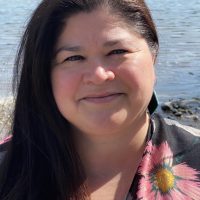
Deanna Machin
Deana Machin is a member of the Syilx (Okanagan) Nation and grew up in her home community along Okanagan Lake near Vernon BC. She has been active in the field of fisheries management and policy for 20-years, specializing in strategic planning and Indigenous engagement in fisheries governance and management initiatives. Deana is the former Strategic Development Manager for the First Nations Fisheries Council of BC where for 10-years the purpose of her work was to build collaborative and effective relationships among First Nations and with Crown government and NGOs. Prior to her time with the FNFC, she was the Fisheries Program Manager for the Okanagan Nation Alliance (ONA) for six years. While working for her Nation, Deana led the Reintroduction of Sockeye Salmon into the Okanagan Basin Initiative, which in 2004 saw the first release of Okanagan sockeye fry into Skaha Lake, and she collaborated with federal and provincial governments and other partners on the development of the Okanagan Basin Fish Water Management Tool model and the Okanagan River Restoration Initiative. She is currently the Senior Indigenous Advisor with the Indigenous Watersheds Initiative, a granting program that supports First Nation communities in BC to advance their vision of watershed health and security. Deana holds a Bachelor of Science in Biology and a Master of Business Administration from the University of British Columbia.